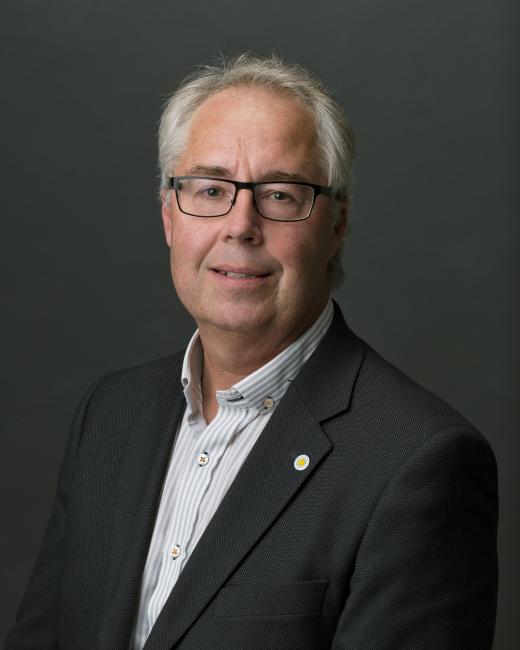Thomas Blom, professor of Human Geography
Thomas Blom grew up in Älvenäs, c. 2 Swedish miles west of Karlstad, and returned to live there ten years ago. He started studying at the former Karlstad University College in 1981, and later completed his doctor’s degree at Gothenburg University in 1996.

”Tourism is one of the largest industries and still growing, which is why it is important to explore how new niche areas can create interest and lead to job opportunities and progress.”
His university career began as a lecturer in Human Geography at Karlstad University College in 1985, which means that he has been an employee at the university for 31 years, with the exception of three years when he was at Örebro University, also heading the Department of Restaurant and Culinary Arts, Grythyttan, for a period of time.
Thomas Blom’s research rests on two legs with the common denominator of local and regional development. His focus has been on education and competence issues and their importance to regional progress. Young adults’ varying inclination to move on to higher education is central to this line of research. In recent years, he has mainly been active in the tourism field, studying how different niche areas have been developed to attract visitors, which is an important part of local and regional development. He has identified the niche areas of ”symbol tourism, morbid tourism, myth tourism and sacred tourism”.
”Tourism in various forms is one of the largest industries and still growing, which is why it is important to explore how new areas can create interest and lead to job opportunities and progress. Individual tourism entrepreneurs as well as municipalities work on creating place identities and new niche areas to attract visitors. This means that my research is interdisciplinary since it relates to economics and sociology.”
Food is a significant factor in attracting visitors. Thomas Blom’s time at Department of Restaurant and Culinary Arts at Grythyttan offered new perspectives on the importance of food.
”We used to be satisfied with experiencing the senses of sight and hearing when visiting new places but now taste, smell and touch are increasingly important for our holistic experience of a place. We don’t travel simply to see places but also to ”taste a place” by eating and drinking the unique cuisine of a place. We get a multi-sensual experience that stimulates all our senses and adds to the appeal of place or region as a destination.”
”In the future I will continue exploring tourism in relation to regional development issues.”
In his spare time Thomas Blom and his wife engage in geocaching – a GPS-supported form of treasure hunting in Sweden and abroad. Geocaching means getting to know new people and keeping the brain and heart fit.

”Tourism is one of the largest industries and still growing, which is why it is important to explore how new niche areas can create interest and lead to job opportunities and progress.”
